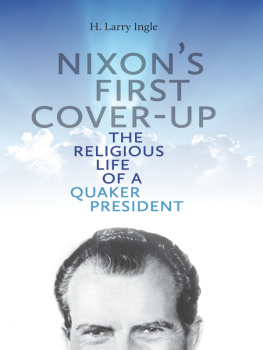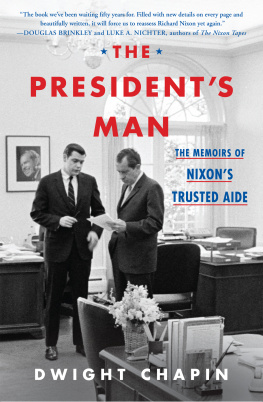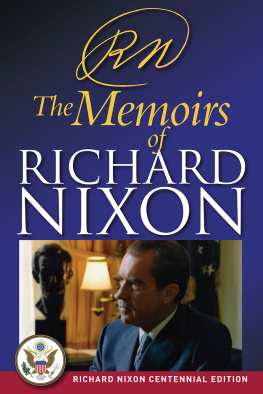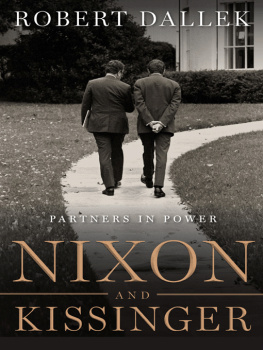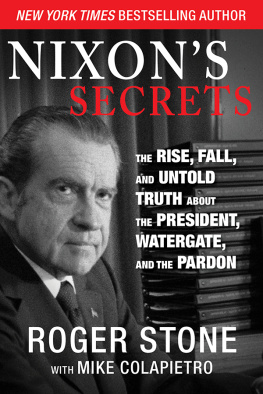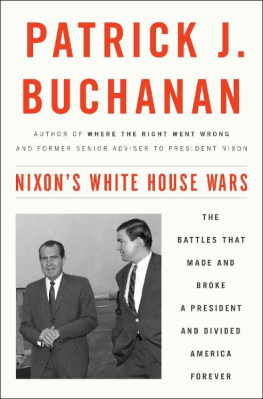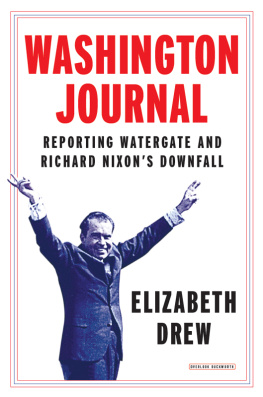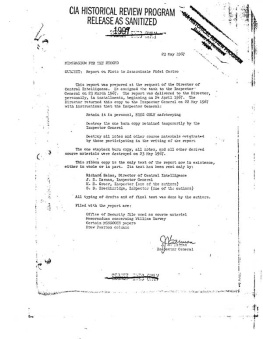THE COMPLEX MAN AT THE CENTER OF AMERICAS MOST SELF-DESTRUCTIVE PRESIDENCY
In this provocative and revelatory assessment of Americas most complicated president, the only one ever forced to resign, the legendary Washington journalist Elizabeth Drew raises the question of whether Richard M. Nixon was fit to hold the highest office in the land. Drew shows that the events that caused Nixons downfall commenced as soon as he became president and that the traits that led to itthe anger, the paranoia, the determination to wreak revenge on those who opposed him were within him from his early life onward. Her carefully researched book offers a new and startling perspective on the life, politics, and policies of our thirty-seventh president.
Nixon was a contradictory figure who defies simple analysisa shy and remote man who nonetheless won the nations highest office and engineered extraordinary accomplishments in foreign policy, reshaping superpower relations through the opening to China and detente with the Soviet Union, even as he allowed the war in Vietnam to play out years longer than it needed to. He was essentially uninterested in domestic issues and yet he signed into law numerous statutes expanding the role of the federal government. Drews acute insight makes clear what were and were not Nixons true achievements, and she reveals the cynicism behind many of his actions. She also shows how this man, capable of cool, long-sighted, and enlightened decision making, could also act so irrationally and self-destructively. The Watergate scandal and the constitutional crisis Nixon provoked were at once an extraordinary overreach of executive power and the inevitable result of the presidents all-consuming suspicions and his passion for vengeance.
Even Nixons postpresidential rehabilitation, in which he sought to recast himself as an elder statesman, was driven by his own consuming desire for respectability, and he largely succeeded, mostly through remarkable resilience and not a little connivance. Through this book we finally understand this smart, talented, peculiar, resentful, haunted politician.
THE AMERICAN PRESIDENTS SERIES
Joyce Appleby on Thomas Jefferson
Louis Auchincloss on Theodore Roosevelt
Jean H. Baker on James Buchanan
H. W. Brands on Woodrow Wilson
Alan Brinkley on John F. Kennedy
Douglas Brinkley on Gerald R. Ford
Josiah Bunting III on Ulysses S. Grant
James MacGregor Burns and Susan Dunn on George Washington
Charles W. Calhoun on Benjamin Harrison
Gail Collins on William Henry Harrison
Robert Dallek on Harry S. Truman
John W. Dean on Warren G Harding
John Patrick Diggins on John Adams
Elizabeth Drew on Richard M. Nixon
John S. D. Eisenhower on Zachary Taylor
Annette Gordon-Reed on Andrew Johnson
Henry F. Graff on Grover Cleveland
David Greenberg on Calvin Coolidge
Gary Hart on James Monroe
Hendrik Hertzberg on Jimmy Carter
Roy Jenkins on Franklin Delano Roosevelt
Zachary Karabell on Chester Alan Arthur
Lewis H. Lapham on William Howard Taft
William E. Leuchtenburg on Herbert Hoover
Gary May on John Tyler
George S. McGovern on Abraham Lincoln
Timothy Naftali on George Bush
Charles Peters on Lyndon B. Johnson
Kevin Phillips on William McKinley
Robert V. Remini on John Quincy Adams
Ira Rutkow on James A. Garfield
John Seigenthaler on James K. Polk
Hans L. Trefousse on Rutherford B. Hayes
Tom Wicker on Dwight D. Eisenhower
Ted Widmer on Martin Van Buren
Sean Wilentz on Andrew Jackson
Garry Wills on James Madison
ALSO BY ELIZABETH DREW
Fear and Loathing in George W Bushs Washington
Citizen McCain
The Corruption of American Politics:
What Went Wrong and Why
Whatever It Takes:
The Real Struggle for Political Power in America
Showdown:
The Struggle Between the Gingrich Congress
and the Clinton White House
On the Edge:
The Clinton Presidency
Election Journal:
Political Events of 1987-1988
Campaign Journal:
Political Events of 1983-1984
Politics and Money:
The New Road to Corruption
Portrait of an Election:
The 1980 Presidential Campaign
Senator
American Journal:
The Events of 1976
Washington Journal:
The Events of 1973-1974
Richard M. Nixon
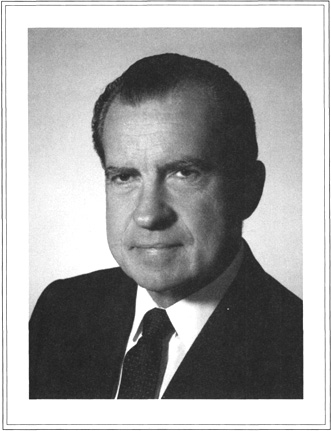
Richard M. Nixon
Elizabeth Drew
THE AMERICAN PRESIDENTS
ARTHUR M. SCHLESINGER, JR., GENERAL EDITOR


Times Books
Henry Holt and Company, LLC
Publishers since 1866
175 Fifth Avenue
New York, New York 10010
Henry Holt is a registered trademark
of Henry Holt and Company, LLC.
Copyright 2007 by Elizabeth Drew
All rights reserved.
Distributed in Canada by H. B. Fenn and Company Ltd.
Frontispiece: Bettmann/CORBIS
Library of Congress Cataloging-in-Publication
Data Drew, Elizabeth.
Richard M. Nixon / Elizabeth Drew. 1st ed.
p. cm.(The American presidents)
Includes bibliographical references and index.
ISBN-13: 978-0-8050-6963-1
ISBN-10: 0-8050-6963-1
1. Nixon, Richard M. (Richard Milhous), 1913-1994.
2. PresidentsUnited StatesBiography. 3. United StatesPolitics and government1969-1974.1. Title.
E856.D74 2007
973.924092dc22
[B] 2006051914
Henry Holt books are available for special promotions and premiums. For details contact: Director, Special Markets.
First Edition 2007
Printed in the United States of America
1 3 5 7 9 10 8 6 4 2
For Arthur Schlesinger
Contents
Editors Note
THE AMERICAN PRESIDENCY
The president is the central player in the American political order. That would seem to contradict the intentions of the Founding Fathers. Remembering the horrid example of the British monarchy, they invented a separation of powers in order, as Justice Brandeis later put it, to preclude the exercise of arbitrary power. Accordingly, they divided the government into three allegedly equal and coordinate branchesthe executive, the legislative, and the judiciary.
But a system based on the tripartite separation of powers has an inherent tendency toward inertia and stalemate. One of the three branches must take the initiative if the system is to move. The executive branch alone is structurally capable of taking that initiative. The Founders must have sensed this when they accepted Alexander Hamiltons proposition in the Seventieth Federalist that energy in the executive is a leading character in the definition of good government. They thus envisaged a strong presidentbut within an equally strong system of constitutional accountability. (The term imperial presidency arose in the 1970s to describe the situation when the balance between power and accountability is upset in favor of the executive.)
Next page

